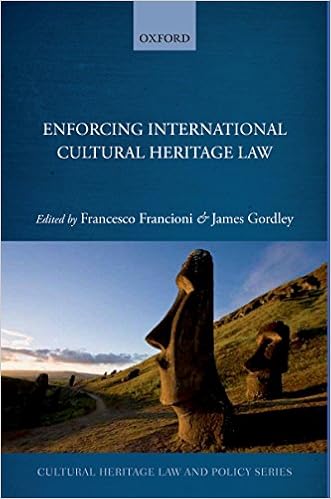
By Steven Lukes
How can a society of various cultures, pursuits and viewpoints agree upon phrases of discussion, or come to an ethical consensus and a coherent public coverage? those probing, nuanced essays discover the philosophical and political dimensions of variety and the ways that diverse cultures are seen by way of relativists, universalists and liberals. Lukes, a sociologist and writer of The Curious Enlightenment of Professor Caritat: A Comedy of principles, mounts a skeptical safeguard of the necessary liberal balancing act. recognize for different cultures, he argues, aren't prevent ethical feedback and judgment; the liberal creed of common rights isn't just a ecu folks trust, a""liberalism for the liberals"" similar to""cannibalism for the cannibals""; and rationality is not only a made of Western-style modernity, yet a typical flooring of conventional societies besides. Many essays are aimed toward the relativism of the multiculturalist left, which he chides for taking into consideration cultures as cohesive, holistic, specific entities while in truth they're heterogeneous, ridden by way of clash and formed by way of outdoor affects. yet he additionally takes at the correct, in its communitarian and libertarian guises; in his most sensible essay he demolishes free-market thinker Friedrich Hayek's argument that society can neither conceive nor enforce a coherent software of social justice. Lukes notes Robert Frost's definition of a liberal as somebody who cannot take his personal part in a controversy, and his personal transparent yet just a little dry prose occasionally results in equivocal conclusions. after all, notwithstanding, his muted yet tenacious protection of liberalism opposed to cultural essentialism is welcome certainly.
Read Online or Download Liberals and Cannibals: The Implications of Diversity PDF
Best human rights books
Get Political Violence and the International Community: PDF
Are civil conflicts and coups d'etat issues of foreign quandary, or questions of nationwide curiosity purely? How can the more and more universal perform of condemnation and intervention through the United countries and person States into occasions of utmost political violence be understood? Will civil clash at some point be thought of unlawful below foreign legislation, within the similar means as overseas conflict?
Download PDF by Simon Walker: The Future of Human Rights Impact Assessments of Trade
In an age of globalization, unfastened exchange may be synonymous with prosperity for all. but too frequently, small farmers, indigenous peoples, individuals with HIV, and others are omitted of the image. This e-book proposes a brand new technique to make loose exchange paintings for every person. It examines how exchange pacts can profit humans, yet may also threaten their simple human rights to entry nutrients, drugs, and schooling, or to guard their cultural history.
New PDF release: Enforcing International Cultural Heritage Law
The assumption of cultural historical past as an 'international public reliable' should be traced again to the Preamble of the 1954 Hague conference for the safety of Cultural estate within the occasion of Armed clash, in keeping with which "damage to cultural estate belonging to any humans whatever potential harm to the cultural historical past of all mankind".
A. Naomi Paik's Rightlessness : testimony and redress in U.S. prison camps PDF
During this daring e-book, A. Naomi Paik grapples with the historical past of U. S. felony camps that experience restricted humans outdoor the limits of felony and civil rights. faraway from the social and political groups that may warrantly primary felony protections, those detainees are successfully rightless, stripped of the perfect even to have rights.
- The Endtimes of Human Rights
- Enforcing obligations erga omnes in international law
- Sharing the Land of Canaan: Human Rights and the Israeli-Palestinian Struggle
- Human Rights in International Relations (Themes in International Relations)
Extra info for Liberals and Cannibals: The Implications of Diversity
Example text
13 A similar story can be told about the denial of human nature. Many different answers have been offered to the deep and perennial questions this issue embraces. What limits to cultural variability does human nature pose? How malleable are human beings to socialization and enculturation? In what ways do biological and cultural evolution interconnect? How are we to conceive of the interaction between nature and nurture? ) The history of the social sciences (sociology and anthropology) and evolutionary and sociobiology have offered alternative answers to what remains a live and perplexing set of issues.
M. Hare) as canonical. Pleonastically, I shall call this the idea of universal reason. The second idea is a view about how human beings are to be conceived, namely, that there is a common human nature which they share, cross-culturally and trans-historically, distinguishing them from non-human animals and from angels. This is sometimes labelled ‘essentialism’ but it need not be the view that there is a fixed structure of traits and passions, as many in the eighteenth century believed, that all human beings display.
It is not just a question of exposing and combating what Clifford Geertz calls ‘provincialism’ – ‘the danger that our perceptions will be dulled, our intellects constricted, and our sympathies narrowed by the overlearned and overvalued acceptances of our own society’ and displaying, in the manner of Edward Said’s Orientalism, the innumerable versions of cultural imperialism that the West has visited upon the Rest. It is the claim that things cannot be otherwise. Universalism is ethnocentric because ethnocentricity is universal.



